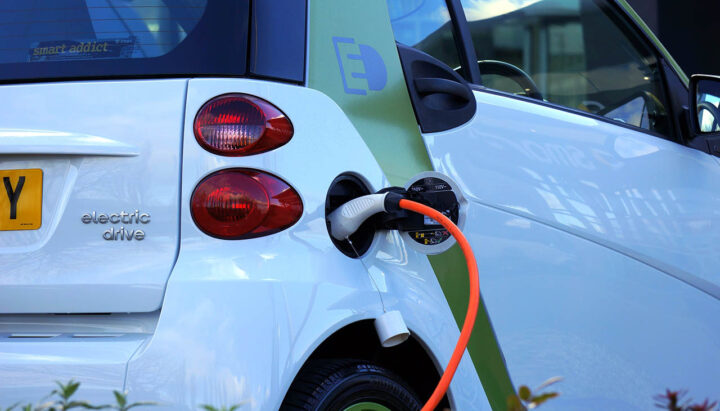As we stand on the brink of an automotive revolution, electric vehicles (EVs) are charging to the forefront of the transportation sector. This shift is fueled by a combination of environmental concerns, technological advancements, and policy initiatives aimed at reducing carbon emissions. The future of EVs is not only promising but is poised to redefine mobility. Innovations in battery technology, autonomous driving systems, and charging infrastructure are accelerating this transition, promising a cleaner, more efficient, and interconnected driving experience.
Growing Consumer Interest in EVs
Consumer preferences are decidedly shifting towards more sustainable modes of transportation, marking a significant transformation in the auto industry landscape. Heightened awareness of environmental issues has led buyers to consider the carbon footprint of their vehicles, steering them towards electric options. Government incentives, such as tax rebates and grants for EV buyers, alongside stringent environmental regulations targeting emissions, are powerful catalysts driving adoption. This government support not only makes EVs more financially appealing but also reflects the broader commitment to combat climate change and promote green technology.
Advancements in Battery Technology
One of the most groundbreaking developments in the field of electric vehicle technology is the emergence of solid-state batteries. These batteries promise substantially higher energy densities compared to their lithium-ion counterparts, which translates to longer ranges and shorter charging times for EVs. Solid-state technology is also believed to improve safety, as they are less prone to overheating and therefore have a reduced risk of combustion. Furthermore, the integration of artificial intelligence into battery management systems is revolutionizing how we optimize battery usage. AI algorithms process real-time data to adjust the charging rates and power distribution, enhancing the efficiency and longevity of batteries. These advancements are not just incremental; they are pivotal in overcoming the current limitations of EVs and are instrumental in propelling electric vehicles into the mainstream automotive market.
Expansion of Charging Infrastructure
The ubiquity and efficiency of EV charging stations are critical to the widespread adoption of electric vehicles. Accessible and fast-charging infrastructure eliminates one of the most significant barriers for consumers—the fear of being stranded with a depleted battery. This form of “range anxiety” can be considerably reduced when drivers have the assurance of widespread charging networks, particularly stations that offer rapid charging capabilities. Innovative solutions are being deployed to address the unique charging needs in both urban and rural environments. In urban areas, where space is at a premium, creative integrations such as charging points in existing structures like lamp posts and parking meters are emerging. Rural areas, on the other hand, require an expansion of charging networks that can bridge the vast distances between locations. To this end, strategic partnerships are being formed to install charging stations at regular intervals and promote the installation of home-charging setups where practical. These developments are crucial for enabling the consistent growth of electric vehicle usage across diverse geographic regions.
Incorporation of Autonomous Driving Features
The integration of autonomous driving technology is set to exert a profound impact on the future of electric vehicles (EVs). Self-driving capabilities not only promise enhanced safety but also aim to redefine the notion of vehicle ownership and the overall transportation experience. Autonomous systems leverage advanced sensors, cameras, and algorithms to navigate traffic, detect obstacles, and make split-second decisions, potentially reducing accidents caused by human error. This unprecedented level of safety aligns perfectly with the environmentally friendly and innovative character of EVs. Moreover, the convenience of autonomous vehicles is projected to transform the daily commute, enabling passengers to focus on work, leisure, or socializing while the car handles all aspects of driving. As EVs become increasingly capable of operating autonomously, they will set new standards for what consumers expect in terms of comfort and functionality, contributing to a seismic shift in mobility patterns.
Sustainable Materials and Design
The sustainability of electric vehicles extends beyond their zero-emission drive trains to include advancements in the materials used for their construction and the very design philosophies that guide their creation. Manufacturers are increasingly turning to eco-friendly materials such as recycled plastics, bio-based composites, and sustainably sourced natural fibers. These materials are not only better for the environment but also contribute to reducing the overall weight of the vehicle, which can significantly affect the efficiency and range of EVs.
In terms of design, engineers are implementing innovative approaches to enhance the aerodynamics of electric vehicles. The goal is to minimize air resistance and maximize efficiency at higher speeds. This is achieved through sleek, contoured designs that allow the vehicles to “slice” through the air with reduced drag. Moreover, smart design can contribute to better heat management, further optimizing battery performance and extending the life of electronic components. Together, the utilization of greener materials and smarter design principles play an essential role in pushing the boundaries of what is possible with electric vehicles, making them more sustainable, efficient, and desirable to consumers.
Market Competition and Collaboration
The EV market is witnessing an intense competition among established automotive giants, innovative startups, and technology firms. Companies like Tesla, with its pioneering work in EVs, continue to lead in terms of technology and market share. Traditional automakers such as Volkswagen, General Motors, and Ford are ramping up their EV portfolios by investing billions into electrification strategies and releasing a variety of models targeting different market segments. These major players are aggressively pursuing advancements in battery technology and autonomous driving features to gain a competitive edge.
Moreover, collaborations between traditional automakers and tech companies are becoming increasingly common, bridging the gap between automotive manufacturing experience and cutting-edge technology. Partnerships like that of Google’s Waymo and various car manufacturers to integrate autonomous driving technology, or collaborations between Apple and established carmakers to explore automotive tech, highlight the synergistic potential. Additionally, collaborations in battery development and production, such as GM’s partnership with LG Chem, underline the strategic alliances forming within the sector. This confluence of automotive history and tech innovation is accelerating the development of EVs, setting the stage for a future where electric transportation is the norm.
